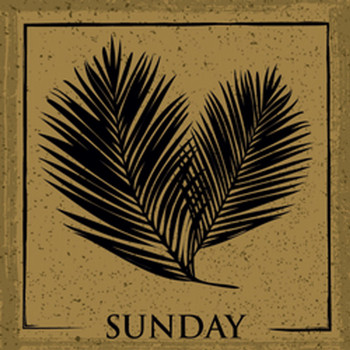
by Hailey Pruitt, publications writer
University Communications and Marketing
“The next day the large crowd that had come to the feast heard that Jesus was coming to Jerusalem. So they took branches of palm trees and went out to meet him, crying out, “Hosanna! Blessed is he who comes in the name of the Lord, even the King of Israel!” And Jesus found a young donkey and sat on it, just as it is written,
“Fear not, daughter of Zion;
behold, your king is coming,
sitting on a donkey's colt!”
His disciples did not understand these things at first, but when Jesus was glorified, then they remembered that these things had been written about him and had been done to him.” — John 12:12-16
As Christ makes his way to Jerusalem for the last time, riding on a colt in fulfillment of Isaiah’s prophecy, the people recognize him as their king. They sing a song from Psalm 118, a regular ritual for the Passover celebrations.Those lining his path with palm branches had seen Jesus’ power in miracles like the resurrection of Lazarus. They knew the Scriptures well enough to connect this king on a donkey to the imagery of palm leaves and victory. But just a few days later, they would raise their voices and demand his death on a cross. They didn’t really see him.
As we read the New Testament, it can be easy to judge the Jews and their leaders. How could the most educated and blessed among God’s people not recognize the Messiah for whom they had spent their lives preparing? Christians often say the Pharisees were too focused on their own power to be able to submit to the true King, and I think that’s right, but as one raised in the church, who attended a Christian college and is pursuing advanced seminary study, I sympathize with the Pharisees. I am thankful to be living on this side of the resurrection, historically. I probably would have missed Jesus too.
In pursuit of humility, let’s spend a little time in the sandals of the Sanhedrin. They truly believed they had to check all the boxes — to follow the law to the last jot and tittle — to be considered worthy. They believed it was their job to preserve the integrity of Israel, to lead the people of God in the right way, which is usually opposite of the rest of the world.
They were living in the promised land, occupied and ruled by the Romans with limited power to govern themselves. They faced persecution because of their peculiarity in the ancient world, namely their worship of only one God instead of the pantheon and their refusal to participate in any Roman festivals and celebrations. They certainly refused to worship Caesar himself. The Romans, stretched too thin across a vast empire, focused on tolerance of their conquered peoples in order to quell uprisings but were always suspicious of these monotheists. They kept the Jews in their place by brute force, but they excused them from worshiping Roman gods and gave them the freedom to worship Yahweh as he had called them to do.
However, the Jewish leaders knew Caesar could take back that freedom in a moment, endangering the future of their people and even their own lives. They also believed they were responsible for investigating anyone claiming to be the Messiah to protect the people from false teaching.
It wasn’t simply arrogance or ambition that kept these leaders of the Lord’s people from recognizing their savior. It was fear, rooted in the lie that holiness is based on heritage and achievement.
A similar fear keeps many of us in the dark. In a culture that prizes individual productivity and values busyness, we are all overburdened by responsibilities that aren’t ours to carry: the fear of letting God down, the fear of failing his people, the fear of somehow ruining the kingdom. These lies are very tempting for those of us who truly love the Lord.
What a gift is the light of life — Jesus Christ himself who reminds us that God is the hero of every story. He has already and is saving the world. When we admit that we can’t do any of it on our own and humbly call “Hosanna”, “God, Save us!”, the scales will fall from our eyes. The burdens will fall from our shoulders, and the truth will set us free!
Thank your for responding to me;
you've truly become my salvation!
The stone the masons discarded as flawed
is now the capstone!
This is God's work.
We rub our eyes—we can hardly believe it!
This is the very day God acted—
Let's celebrate and be festive!
Salvation now, God. Salvation now!
Oh yes, God—a free and full life!
Psalm 118:21-25, The Message